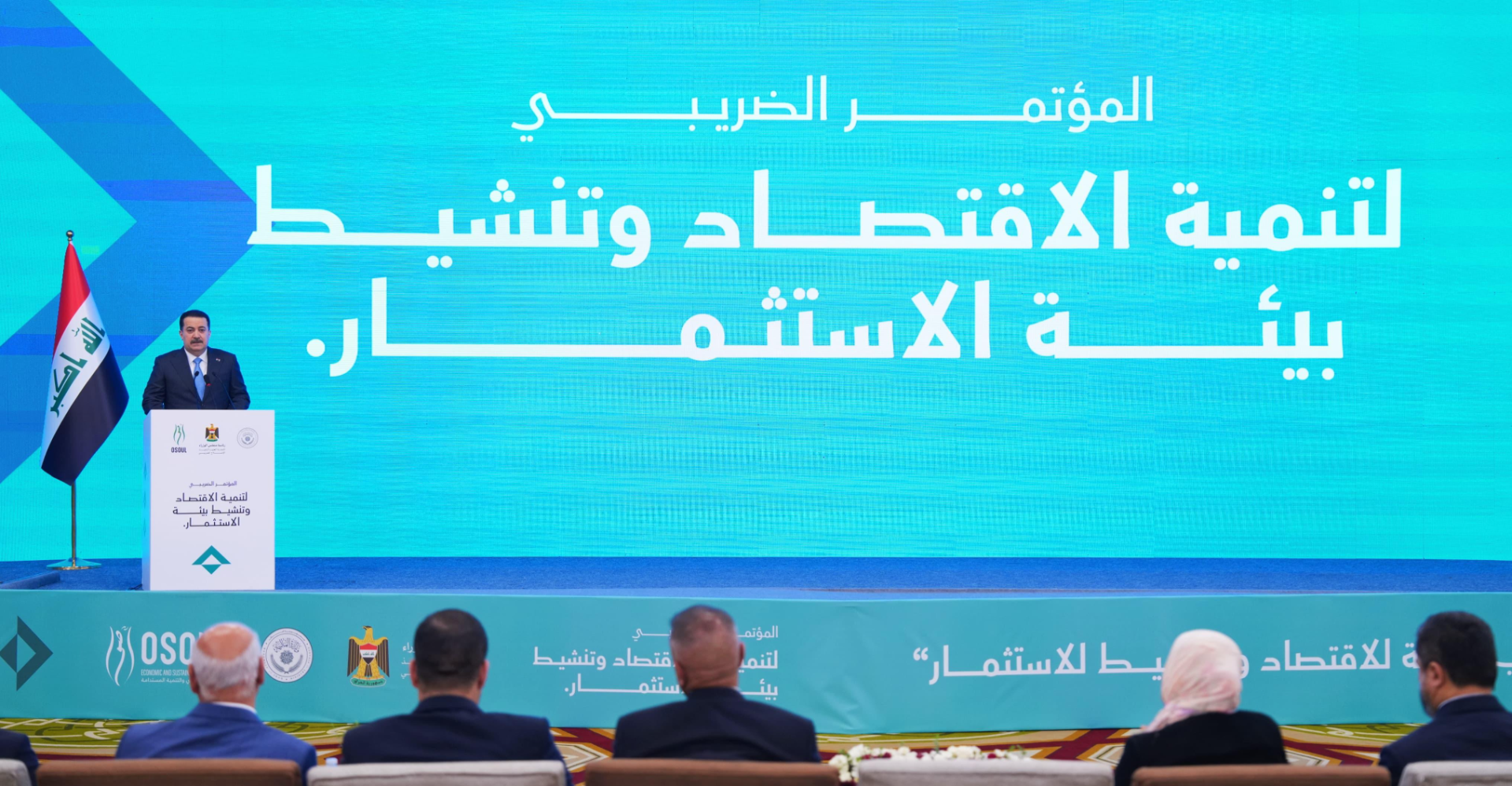Al-Sudani: 150 trillion dinars in annual spending, compared to only 3 trillion in tax revenues.
 Prime Minister Mohammed Shia al-Sudani affirmed on Monday that Iraq faces a major economic challenge, namely the priority of reform and the transition to a diversified economy. He noted that public spending in each fiscal year amounts to approximately 150 trillion dinars, compared to tax revenues that do not exceed 3 trillion.
Prime Minister Mohammed Shia al-Sudani affirmed on Monday that Iraq faces a major economic challenge, namely the priority of reform and the transition to a diversified economy. He noted that public spending in each fiscal year amounts to approximately 150 trillion dinars, compared to tax revenues that do not exceed 3 trillion.
In a speech at the Tax Conference for Economic Development and Investment Environment held in Baghdad, Al-Sudani said, “The general budget amounts to approximately 150 trillion dinars annually, compared to tax revenues that do not exceed 3 trillion. These figures require a pause and review.”
He added that “economic reform decisions were previously exploited as part of slogans and to pressure official institutions,” noting that “the government sponsored a tax reform conference in December 2023, which produced a package of important recommendations.”
He explained that “Cabinet Resolution No. 24074 of 2024 put the tax reform packages into effect, followed by the formation of the Supreme Committee for Monitoring Tax Reform,” indicating that “the efforts resulted in international interest from investors in tax reform in Iraq.”
Al-Sudani continued, “The government has worked to increase non-oil resources despite great caution due to the absence of a supportive political and social environment,” noting that “the index rose from 7% in 2022 to 14% in 2024.”
He pointed out that “tax revenues increased by 26% in 2024 compared to the previous year, and by 3% in the first half of the current year compared to the same period last year,” stressing that “digital transformation has contributed to enhancing tax capacity and accuracy.”
Al-Sudani explained that “the tax inquiry platform has put an end to cases of name mismatch, delays, and corruption, and undermined taxpayers’ confidence in tax procedures,” adding that “the tax payment receipt and reconciliation system has been implemented electronically, having previously been paper-based.”
He affirmed that “there is communication with reputable international companies to work towards achieving the highest international standards in the tax system,” emphasizing that “the draft of the new income tax law adopts international standards while adhering to social justice and tax exemptions for those with the lowest incomes.”
He pointed out that “the new law, which will soon be enacted, will be business-friendly and supportive of the green economy and startups,” noting that “the Supreme Committee for Tax Reform has completed a policy paper on tax accounting for oil companies to address the problems and obstacles facing their operations.”
Al-Sudani added that “the unification of tax procedures between the federal government and the Kurdistan Regional Government has facilitated the processing of tax files for universities and private banks,” stressing that “the reforms being implemented represent a message to citizens to support their political system and manage resources optimally.”
He concluded by saying, “We will not allow any tax increase that creates a business-repellent climate or comes at the expense of fair taxation.”
Shafaq.com
